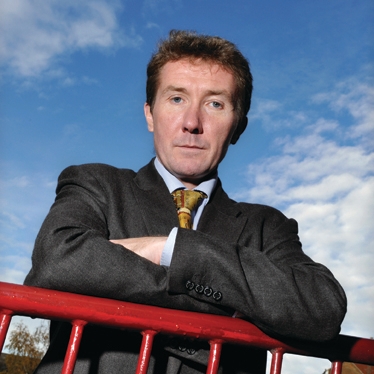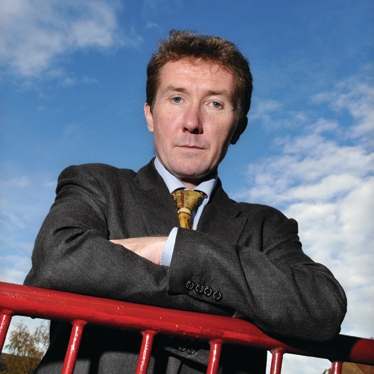‘Targets to reduce referrals are morally abhorrent’


I was three when I was first asked what I wanted to do, and I said ‘a doctor’. I never wavered from that desire right through school and university and 28 years after qualification, until now.
I have naively thought that the doctor’s role was to help patients get the best treatment for their condition at the time. The strength of the NHS is that patients get care irrespective of their ability to pay and the doctors treat without a pecuniary conflict of interest.
When I started as a GP it was in fund holding days and there have been many changes since. The role of the GP then was to be very much the gate keeper and also sign poster for patients. Our role was to help them navigate the system to see the appropriate clinician. It was also to advise about treatments and to help patients determine the best options and not be over treated. We have fixed-list, cradle-to-grave responsibility. We worked as a team with secondary care referring when the patient’s problem was beyond our therapeutic range and needed the expert. The patient was discharged back cured or with a plan.
As a former CCG chair and co-chair of a Health and Wellbeing Board my driving goal was to ensure patients received the best care delivered by the most appropriate person in the most appropriate setting. The system had grown organically into such a complex structure that it is almost impossible to know where to start. Patients only know of two places to access care – their GP or A&E. Over time the business models that run the NHS have created perverse incentives from both the commissioner and the provider.
Patients will be suspicious of motives and trust will be impossible to regain
Commissioners try to buy care at a lower cost than can be provided in the traditional hospital setting and so a whole host of schemes have been established to provide care closer to home with the hope they are cheaper. Providers need the footfall to be able to claim the tariff for seeing patients but need to reduce costs by getting unprofitable work delivered by an alternative provider.
Fifteen years ago I was involved in a referral management scheme to help our local hospital by redirecting referrals to the most appropriate place, as I had a catalogue of available services that were particularly underused in the community provider and the voluntary sector. There was never the intention of stopping a referral because the decision for that was taken between the patient and their GP.
I am shocked to see how some schemes are being developed around the country to reduce referrals. Financial rewards used to incentivise referral behaviour by peer review or post referral learning events have a place as they drive up the quality of referrals. I am all in favour of paying people for the work they do. But paying them to reduce activity is wrong. The demand is always there and growing as we have an aging population with many more co-morbidities. To incentivise financially to reduce referrals would betray the founding principles of the NHS: the implication is that they are inappropriate and wasteful. The sanctity of the doctor-patient relationship is being challenged and the fundamental trust that patients have will be eroded. As a GP the decision to refer or not should only be on clinical grounds and not an arbitrary target with essentially penalties if missed.
Satisfaction with the NHS and primary care is at an all-time low for numerous factors. Schemes that appear to bribe primary care to prevent spend in secondary care will deeply undermine any remaining confidence. Patients will be suspicious of motives and trust will be impossible to regain.
Jean-Baptiste Say, the French economist, said in 1804: ‘Any care giver paid to deliver care supply will outstrip demand.’ In these proposed schemes the opposite is true. The unintended consequence of these plans to reduce referrals is that patients will slip through the net and be harmed by delayed investigation and treatments.
Everyone needs to be mindful of how much is being spent on healthcare and I am all for improving pathways and making patients’ journeys more efficient, but having targets to reduce numbers is morally abhorrent. Those that have written the plan will not be standing in the dock or in front of the GMC when patients have suffered. I would not want to be complicit in the rationing of healthcare and the responsibility for funding it remains with our elected political leaders.
Dr Joe McGilligan is a GP in Surrey
More on the ‘Cash for cuts’ investigation

cash for cutslogo 580px387px
Cash for cuts: GPs incentivised to reduce referrals
GPs offered up to 50% cut of savings generated by slashing their own referrals
How the ‘Cash for cuts’ referral schemes work
Pulse July survey
Take our July 2025 survey to potentially win £1.000 worth of tokens












